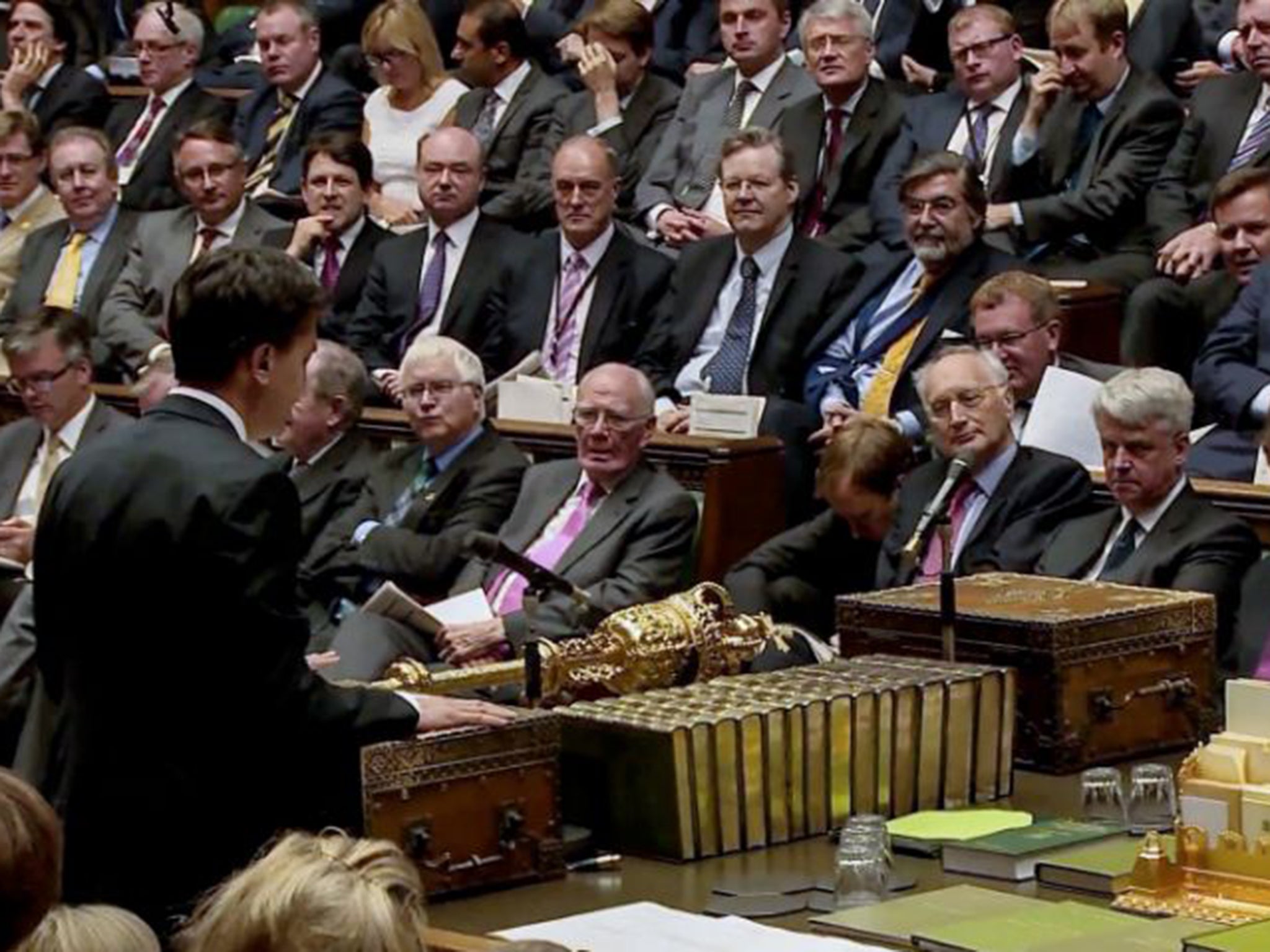Your support helps us to tell the story
From reproductive rights to climate change to Big Tech, The Independent is on the ground when the story is developing. Whether it's investigating the financials of Elon Musk's pro-Trump PAC or producing our latest documentary, 'The A Word', which shines a light on the American women fighting for reproductive rights, we know how important it is to parse out the facts from the messaging.
At such a critical moment in US history, we need reporters on the ground. Your donation allows us to keep sending journalists to speak to both sides of the story.
The Independent is trusted by Americans across the entire political spectrum. And unlike many other quality news outlets, we choose not to lock Americans out of our reporting and analysis with paywalls. We believe quality journalism should be available to everyone, paid for by those who can afford it.
Your support makes all the difference.The former head of the civil service has dismissed concerns that a coalition government led by a party that did not win the most seats would be illegitimate.
Gus O’Donnell, who supervised the 2010 coalition negotiations as cabinet secretary, said the rules on the matter were “clear” and laid out in a document signed by David Cameron.
“We live in a parliamentary democracy … the rules are very clear, they are laid out in the Cabinet Manual, and it says the ability of government to command the confidence of the elected House of Commons is central to its authority to govern,” he told the Today programme this morning.
The intervention would appear to put to bed suggestions in the press that such a government would be illegitimate despite it commanding a majority.
Lord O’Donnell, who has sat as a crossbench peer since 2012, questioned whether it would be reasonable for Mr Cameron to stay on as Prime Minister in the event of a clear Labour-SNP majority in the House of Commons.
“It would be feasible for him to stay on… reasonable would be a test of political. If [the PM] goes to the Commons and he’s defeated by a large margins, there would be questions about why he would do that,” he said.
“He could do that, all I’m saying is it would be a political judgment on his part to decide whether it was the right thing to do.”
The former Cabinet Secretary said the question of electoral reform should be considered after the election if Britain’s First Past The Post electoral system produced disproportionate results.
“There’ll be questions as to is it fair that Ukip and the Greens got lots and lots of votes but very few seats – reasonable questions, and it’s for us to think about ‘is this the electoral system we want in this country’?” he said.
Ukip is expected to gain between 10% and 20% of the vote but the party believes it will only win a “handful” of seats – probably fewer than 10 out of 650.
Equally, the Green Party is unlikely to win more than one seat despite polling around 5%.
Polls currently point to a hung parliament with the SNP as the third largest party and likely to hold the balance of power.
The nationalists have ruled out doing any deal to support the Conservatives.

Join our commenting forum
Join thought-provoking conversations, follow other Independent readers and see their replies
Comments